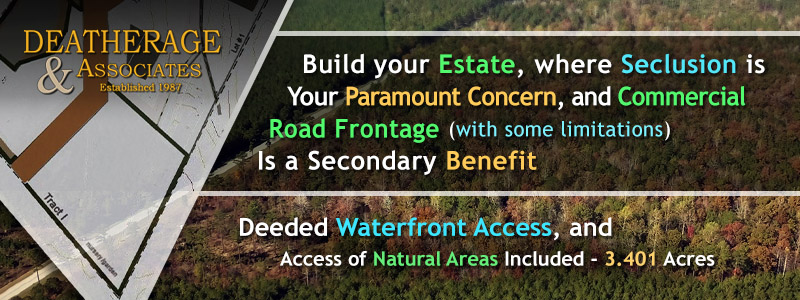Stewards of the Visual Exposition
TSA Program To Protect Aviation From High Risk Passengers Failing After Eight Years
Press Release:
A controversial government program launched nearly a decade ago to protect airline safety has failed miserably to meet its "mission of mitigating the threat to commercial aviation," according to a scathing federal audit sprinkled with redactions to protect "sensitive security information." Known as Quiet Skies, the program was launched jointly by the Department of Homeland Security (DHS) and the Transportation Security Administration (TSA) in early 2012. It uses enhanced screening procedures on higher risk passengers that Federal Air Marshal Service (FAMS) officers utilize to observe the individuals at airports and during flights. Quiet Skies has caused a ruckus among civil liberties groups that accuse the government of unscrupulously spying on everyday citizens. One national civil rights organization says the TSA is engaging in covert surveillance of innocent fliers and "raising a host of disturbing questions in the process."
TSA has long defended the security measure, which the agency says relies heavily on terrorist travel trends, methods, techniques or associations with known or suspected terrorists on federal government watchlists. In a 2018 piece posted on its website, the agency describes Quiet Skies as a tool that allows Air Marshals to more efficiently deploy law enforcement resources to focus on travelers who may present an elevated risk to aviation security. "Through TSA's Secure Flight Program and by leveraging Custom and Border Protection's Automated Targeting System, TSA's intelligence professionals develop a set of risk-based, intelligence-driven scenario rules, which allow us to identify international travelers who may require enhanced screening," the agency writes. "These rules have strict oversight by the Department of Homeland Security, including the privacy, civil rights and liberties, and general counsel offices." Quiet Skies helps reduce the risk on airplanes by identifying passengers deemed to be higher risk according to certain travel patterns and other intelligence-based factors, TSA assures.
The agency's watchdog disagrees, rebuking it for failing to properly operate the flawed security measure which cost American taxpayers about $1.2 million for the first six years. "TSA did not properly plan, implement, and manage the Quiet Skies program to meet the program's mission of mitigating the threat to commercial aviation posed by higher risk passengers," the DHS Inspector General writes in its report. "Specifically, TSA did not develop performance goals and measures to demonstrate program effectiveness, or always adhere to its own Quiet Skies guidance. This occurred because TSA lacked sufficient oversight to ensure the Quiet Skies program operated as intended." As an example, the IG reveals that TSA does not even have a centralized office or entity to ensure the various agency offices properly managed Quiet Skies passenger data. "Without sufficient metrics, analysis, and controls, TSA cannot be assured the Quiet Skies program enhances aviation security through FAMS as intended," the report states.
The Air Marshal National Council responded to the audit with a statement that slams Quiet Skies and claims that the recently published DHS IG report "outlines a sickening level of leadership and malfeasance." The group that represents federal officers nationally has long voiced its opposition to Quiet Skies. In the statement widely distributed after the IG report was made public, the group calls the controversial security measure a "complete disaster" and "yet another example of a program that has been completely mismanaged by an incompetent leadership." Embedded in the press release is a quote from an unidentified senior Federal Air Marshal who says: "I've been mandated to track people who were less than established threats. This includes children, active military, and even other Air Marshals. Travelers should be angry."
While TSA does not admit specific wrongdoing, the agency agrees with some of the watchdog's assessments and recommendations to make Quiet Skies more effective. Nevertheless, TSA Administrator David Pekoske defends it in a letter to the agency watchdog that says at least 58 travelers who were initially monitored under the surveillance program from 2014 to 2020 were later labeled as "known or suspected terrorists" and added to the government's no-fly terrorist watchlist.
Go Back
A controversial government program launched nearly a decade ago to protect airline safety has failed miserably to meet its "mission of mitigating the threat to commercial aviation," according to a scathing federal audit sprinkled with redactions to protect "sensitive security information." Known as Quiet Skies, the program was launched jointly by the Department of Homeland Security (DHS) and the Transportation Security Administration (TSA) in early 2012. It uses enhanced screening procedures on higher risk passengers that Federal Air Marshal Service (FAMS) officers utilize to observe the individuals at airports and during flights. Quiet Skies has caused a ruckus among civil liberties groups that accuse the government of unscrupulously spying on everyday citizens. One national civil rights organization says the TSA is engaging in covert surveillance of innocent fliers and "raising a host of disturbing questions in the process."
TSA has long defended the security measure, which the agency says relies heavily on terrorist travel trends, methods, techniques or associations with known or suspected terrorists on federal government watchlists. In a 2018 piece posted on its website, the agency describes Quiet Skies as a tool that allows Air Marshals to more efficiently deploy law enforcement resources to focus on travelers who may present an elevated risk to aviation security. "Through TSA's Secure Flight Program and by leveraging Custom and Border Protection's Automated Targeting System, TSA's intelligence professionals develop a set of risk-based, intelligence-driven scenario rules, which allow us to identify international travelers who may require enhanced screening," the agency writes. "These rules have strict oversight by the Department of Homeland Security, including the privacy, civil rights and liberties, and general counsel offices." Quiet Skies helps reduce the risk on airplanes by identifying passengers deemed to be higher risk according to certain travel patterns and other intelligence-based factors, TSA assures.
The agency's watchdog disagrees, rebuking it for failing to properly operate the flawed security measure which cost American taxpayers about $1.2 million for the first six years. "TSA did not properly plan, implement, and manage the Quiet Skies program to meet the program's mission of mitigating the threat to commercial aviation posed by higher risk passengers," the DHS Inspector General writes in its report. "Specifically, TSA did not develop performance goals and measures to demonstrate program effectiveness, or always adhere to its own Quiet Skies guidance. This occurred because TSA lacked sufficient oversight to ensure the Quiet Skies program operated as intended." As an example, the IG reveals that TSA does not even have a centralized office or entity to ensure the various agency offices properly managed Quiet Skies passenger data. "Without sufficient metrics, analysis, and controls, TSA cannot be assured the Quiet Skies program enhances aviation security through FAMS as intended," the report states.
The Air Marshal National Council responded to the audit with a statement that slams Quiet Skies and claims that the recently published DHS IG report "outlines a sickening level of leadership and malfeasance." The group that represents federal officers nationally has long voiced its opposition to Quiet Skies. In the statement widely distributed after the IG report was made public, the group calls the controversial security measure a "complete disaster" and "yet another example of a program that has been completely mismanaged by an incompetent leadership." Embedded in the press release is a quote from an unidentified senior Federal Air Marshal who says: "I've been mandated to track people who were less than established threats. This includes children, active military, and even other Air Marshals. Travelers should be angry."
While TSA does not admit specific wrongdoing, the agency agrees with some of the watchdog's assessments and recommendations to make Quiet Skies more effective. Nevertheless, TSA Administrator David Pekoske defends it in a letter to the agency watchdog that says at least 58 travelers who were initially monitored under the surveillance program from 2014 to 2020 were later labeled as "known or suspected terrorists" and added to the government's no-fly terrorist watchlist.
| State Audit Raises Yet More Questions About NC Department of Public Instruction | Judicial Watch Guest Editorial, Editorials, Op-Ed & Politics | Juan Williams Tests Positive for COVID-19 |
Latest Op-Ed & Politics
|
illegal alien "asylum seeker" migrants are a crime wave on both sides of the Atlantic
Published: Thursday, April 18th, 2024 @ 8:10 am
By: John Steed
|
|
UNC board committee votes unanimously to end DEI in UNC system
Published: Thursday, April 18th, 2024 @ 7:54 am
By: John Steed
|
|
this is the propagandist mindset of MSM today
Published: Wednesday, April 17th, 2024 @ 3:04 pm
By: John Steed
|
|
Police in the nation’s capital are not stopping illegal aliens who are driving around without license plates, according to a new report.
Published: Wednesday, April 17th, 2024 @ 8:59 am
By: Daily Wire
|
|
same insanity that created Covid
Published: Wednesday, April 17th, 2024 @ 8:58 am
By: John Steed
|
|
Davidaon County student suspended for using correct legal term for those in country illegally
Published: Wednesday, April 17th, 2024 @ 7:23 am
By: John Steed
|
|
given to illegals in Mexico before they even get to US: NGOs connected to Mayorkas
Published: Tuesday, April 16th, 2024 @ 11:36 am
By: John Steed
|
|
committee gets enough valid signatures to force vote on removing Oakland, CA's Soros DA
Published: Tuesday, April 16th, 2024 @ 10:32 am
By: John Steed
|
|
other pro-terrorist protests in Chicago shout "Death to America" in Farsi
Published: Monday, April 15th, 2024 @ 9:13 pm
By: John Steed
|
|
claim is needed "to meet climate targets
Published: Monday, April 15th, 2024 @ 2:07 pm
By: John Steed
|
|
Only two of the so-called “three Johns” will be competing to replace Sen. Mitch McConnell (R-KY) as leader of the Senate GOP.
Published: Monday, April 15th, 2024 @ 12:50 pm
By: Daily Wire
|
|
particularly true on economic matters
Published: Sunday, April 14th, 2024 @ 8:58 pm
By: John Steed
|
|
House Judiciary Chair Jim Jordan (R-OH) is looking into whether GoFundMe and Eventbrite cooperated with federal law enforcement during their investigation into the financial transactions of supporters of former President Donald Trump.
Published: Sunday, April 14th, 2024 @ 6:56 pm
By: Daily Wire
|
|
Turkish diplomatic sources say he did
Published: Sunday, April 14th, 2024 @ 6:08 pm
By: John Steed
|
|
Popularity of government leader crashes, even among his own party members.
Published: Sunday, April 14th, 2024 @ 2:12 pm
By: John Steed
|























